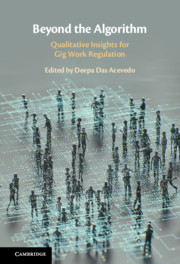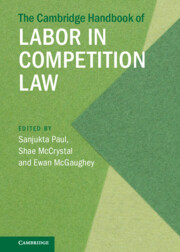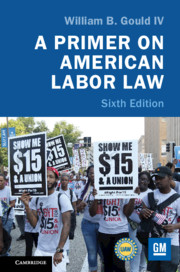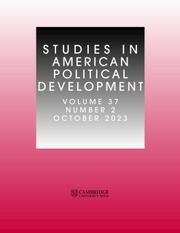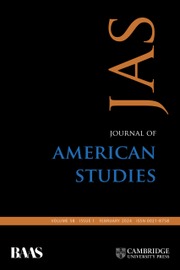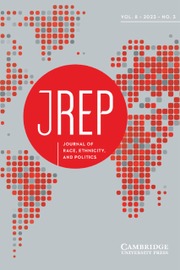For Labor To Build Upon
One of the enduring legacies of the United States Civil War is that democracy in the workforce is an essential part of societal democracy. But the past century has seen a marked decline in the number of unionized employees, a trend that has increased with the rise of the internet and low-paying, gig-economy jobs that lack union protection. William B. Gould IV takes stock of this history and finds that unions, frequently providing inadequate energy and resources in organizing the unorganized, have a mixed record in dealing with many public-policy issues, particularly involving race. But Gould argues that unions, notwithstanding these failures, are still the best means to protect essential workers in health, groceries, food processing, agriculture, and the meatpacking industry, and that the law, when properly deployed, can be a remedy not only for trade union-employer relationships, but also for the ailments of democracy itself.
- Estimates the future trajectory of unions in the United States and how the law can impact union growth
- Applies a larger historical perspective to the current labor crisis
- Provides historical lessons for the contemporary labor movement during the Covid-19 pandemic and beyond
Reviews & endorsements
‘A wide-ranging and well-informed appraisal of the possibilities and limitations of labor and employment law in establishing effective collective voice for employees in diverse 21st century workplaces.’ Robert Flanagan, Professor Emeritus, Graduate School of Business, Stanford University.
‘In a period of increased approval of labor unions among American adults and increased income inequality between the rich and poor and black and white, the veteran labor lawyer, former NLRB chair and distinguished law professor, William B. Gould IV has advocated the need for more workplace democracy. To achieve this important goal, he has provided valuable insights for wide ranging labor law reform, but he has demonstrated that the labor movement is ossified and needs to become more serious about investing in organizing with the kind of financial commitment that was seen in the 1930’s to counter the militant opposition of management.’ Joel A. D’Alba, Chair of the American Bar Association Section of Labor and Employment Law 2013-14
‘Another gem of a book on labor and employment law from the remarkable William Gould. Will be of interest to anyone concerned with the current legal, political and economic environments surrounding workers' rights and protections. The chapters on the gig economy, racial discrimination, professional sports, and the pandemic are especially useful, as are the historical review of how labor declined and what can be done now.’ Michael Reich, Professor, University of California, Berkeley
'… an insightful and well thought out analysis of the historical evolution of American labour law [that] offers detailed recommendations for its reform.' Braham Dabscheck, Australian Journal of Labour Law
‘a timely and provocative reminder of labor’s past history, current predicament, and uncertain future.’ Matthew T. Bodie, ILR Review
Product details
May 2022Adobe eBook Reader
9781009179683
0 pages
This ISBN is for an eBook version which is distributed on our behalf by a third party.
Table of Contents
- 1. Introduction
- 2. An overview
- 3. Unions, employment conditions, and American exceptionalism
- 4. The historical backdrop
- 5. Modern labor framework
- 6. The gig economy and all that
- 7. American amateur players arise: You have nothing to lose but your amateurism
- 8. Union decline: Can labor law revisions be enacted and have an impact?
- 9. Conclusion.


